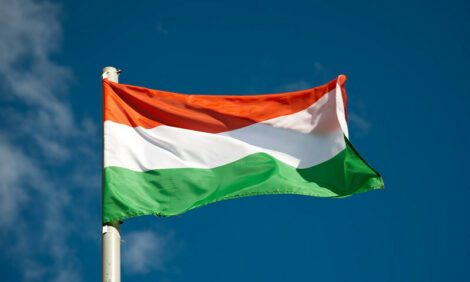



Trump to impose 10% baseline tariff on Australian exports
Australian beef singled out in White House commentsAustralian Prime Minister Anthony Albanese said on Thursday the decision by US President Donald Trump to impose a 10% tariff on its ally was "not the act of a friend," but ruled out reciprocal tariffs against the United States, reported Reuters.
In comments outside the White House, Trump singled out Australian beef, which saw a surge in exports to the United States last year, reaching A$4 billion amid a slump in US beef production.
"They won't take any of our beef. They don't want it because they don't want it to affect their farmers and you know, I don't blame them but we're doing the same thing right now," Trump said in an event in the White House Rose Garden announcing tariffs on a wide range of US trading partners.
Australia banned US fresh beef products in 2003 due to the detection of bovine spongiform encephalopathy, otherwise known as mad cow disease, in US cattle. BSE poses a risk to human health and has never been detected in cattle in Australia.
Albanese said Trump had not banned Australia beef, but had imposed a 10% duty on all Australian goods entering the United States, equivalent to the US baseline tariff on all imports, despite US goods entering Australia tariff free.
"The (Trump) administration's tariffs have no basis in logic and they go against the basis of our two nations' partnership. This is not the act of a friend," Albanese told reporters.
Australia would not impose reciprocal tariffs as this would increase prices for Australian households, he added.
"We will not join a race to the bottom that leads to higher prices and slower growth," Albanese said.
Australian officials said countries in the Indo-Pacific region were among the hardest hit by the US tariffs, with Albanese suggesting this could advantage China.
"There's no doubt that the response on a range of issues, be it action on climate change as well as trade issues will affect the strategic competition that's here in the region," he said.
Australia would seek to negotiate with the US to remove the tariffs without resorting to a dispute resolution mechanism in the two countries' Free Trade Agreement, he said.
Amid the campaign for parliamentary elections set for May 3, opposition Liberal Party leader Peter Dutton criticised Albanese for not winning a tariff exemption, and said Australia should leverage its critical minerals deposits and defence alliance to quickly strike a deal with Trump.
"This is a bad day for our country," Dutton said.
Australia had used all elements of its diplomacy, Albanese said, including seeking advice last night over dinner from sport star Greg Norman, who plays golf with Trump.
Beef over biosecurity
Tariff negotiations over beef had stalled as Australia insisted on US meat imports meeting its biosecurity standards, Albanese said.
Biosecurity is one of three areas, alongside subsidised pharmaceuticals that lower health costs to Australians, and rules on US social media platforms, raised by the US as trade barriers that Australia would not compromise on, he told reporters.
Australia will offer financial support to affected exporters to help them find new markets, with a fund offering A$1 billion ($627 million) in zero interest loans.
National Farmers Federation President David Jochinke said the tariffs were a "disappointing step backward for our nations and for the global economy", but the industry would prevail because its farmers are "among the least subsidised farmers in the world".
Exports to the United States are less than 5% of Australia's total goods exports, compared to one in four export dollars coming from trade with China.
Australian steel and aluminium exports are also subject to US tariffs on the metals announced in March, though its shipments to the US are a fraction of the value of country's total annual exports. Less clear is the impact from those levies on Australia's mining sector, which supplies much of the world's iron ore and other metal-making raw materials.
Trade Minister Don Farrell said Australia was opening new exports markets in India and the Middle East, and would seek to revive free trade negotiations with the European Union that had stalled last year over access for Australian beef.
"The world has changed," he said.
New Zealand's Trade Minister Todd McClay said a 10% tariff on the country, a large exporter of lean beef used in US hamburgers, meant its exports remain competitive in the US market, compared to nations hit by higher tariffs.
($1 = 1.5949 Australian dollars)



